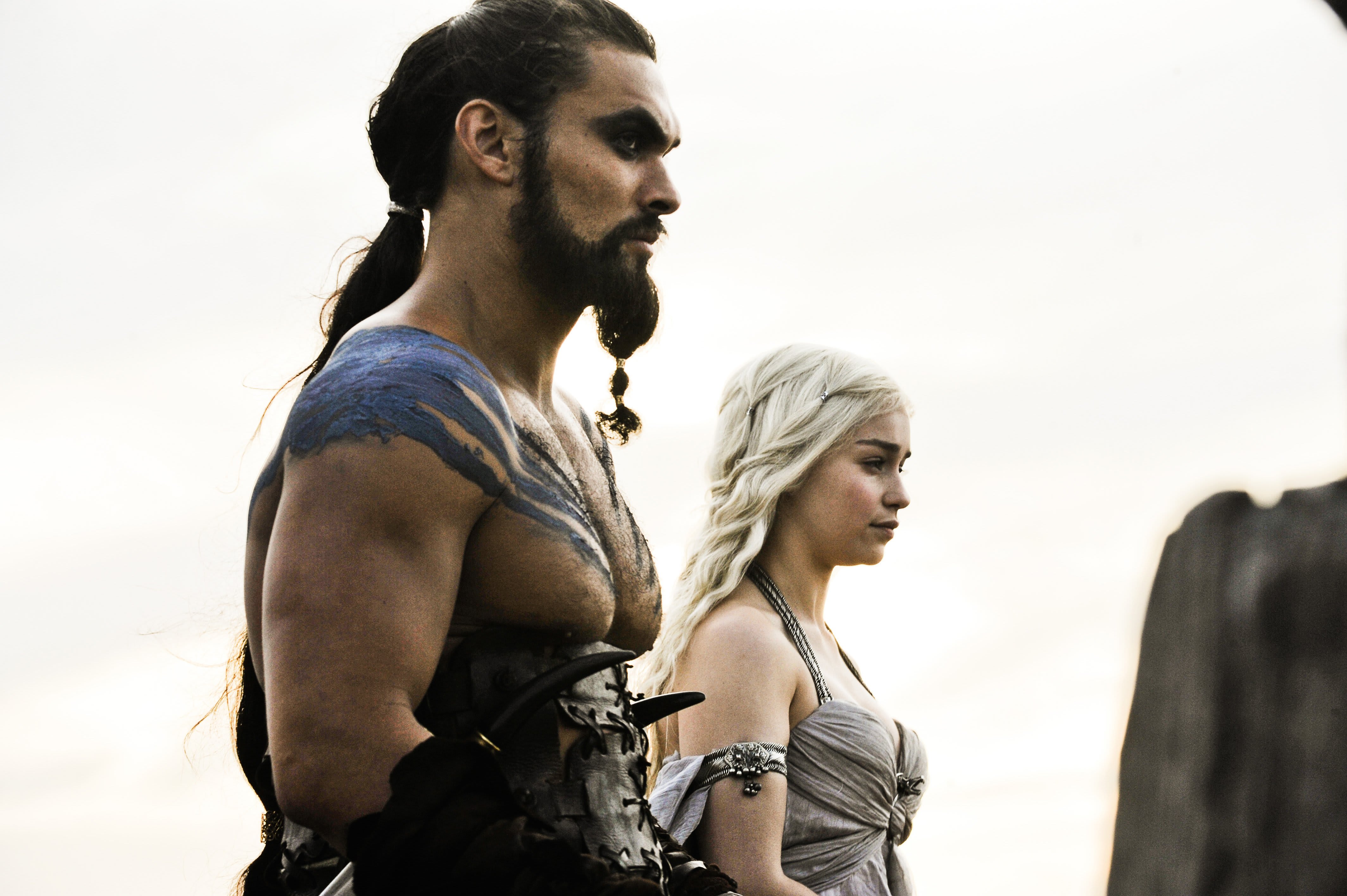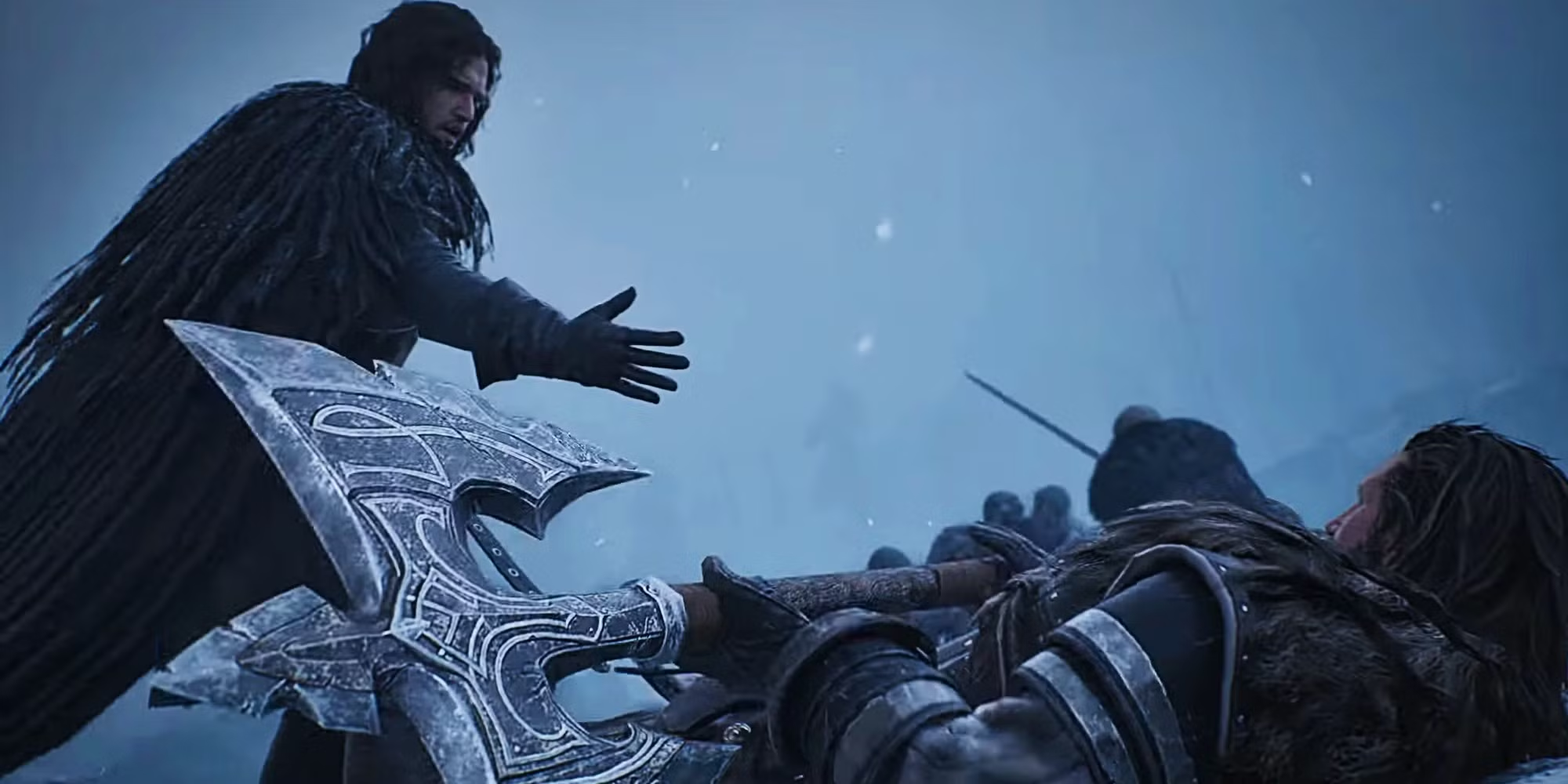Nikolaj Coster-Waldau weighs in on controversial Game of Thrones moments, including the ending and Daenerys’ wedding night with Khal Drogo.
While promoting his new movie The Silencing with The Times of London, Game of Thrones star Nikolaj Coster-Waldau (Jaime Lannister) talked about some of the most controversial aspects of the hit HBO show, including the scene in the very first episode where Daenerys Targaryen (Emilia Clarke) is raped by her new husband Khal Drogo (Jason Momoa).
“For Emilia to play that in series one was really tough and degrading, because what that character goes through is horrific,” Coster-Waldau said. “She’s sold to a guy who rapes her, but her way of getting through that is a massive journey, right?”
Coster-Waldau goes further, suggesting that this early mistreatment of Daenerys may have been part of the reason why she snaps near the end of the series. “That’s the storytelling, and it’s interesting.”
Cersei, too, was never looked upon as an equal to her brother just because of gender. But then she rises to the top. And you could argue that the way those two women turned out was because of being raised in this horrific way.
The idea that lingering trauma can influence characters’ actions makes sense, although I’d never drawn exactly this connection before.
Talking about Daenerys’ rape scene in the first episode is a sensitive topic for obvious reasons, but also because it’s been the subject of debate just recently, with A Song of Ice and Fire author George R.R. Martin dinging the show for changing what was a consensual encounter in his books to a nonconsensual one on TV. “It made it worse, not better,” he said in James Hibberd’s recent oral history of Game of Thrones, Fire Cannot Kill a Dragon.
The counterargument to this is that it’s unrealistic and even irresponsible to portray a sexual encounter between a fully grown man (Drogo) and a teenager (Daenerys, who’s even younger in the books) as consensual — and remember, at this point the two are strangers who don’t even speak the same language. This is something the producers themselves seemed to consider when filming the scene. “It turns too quickly,” showrunner Dan Weiss said in Hibberd’s book. “It was something the actors themselves felt wasn’t gelling. They weren’t able to find an emotional handhold.”

Image: Game of Thrones/HBO
And that’s not the only controversial topic Coster-Waldau weighed in on. He also talked about the ending of the series, which many fans publicly disparaged, calling the reactions “interesting.”
Because when you meet people, they’re not angry at all, are they? Then they get behind a keyboard and get opinionated and write a petition. I did a round table with hardcore fans, and we were all talking about the ending and what I found was that, yes, most had another idea for what would have been a great ending, but, ultimately, they just didn’t want the show to end.
Finally, just so we have something non-controversial to talk about, Coster-Waldau paid his respects to the late great Diana Rigg, who played the Lady Olenna Tyrell. “You just didn’t mess with her,” Coster-Waldau said. “She had so much bite in a very funny way, and you can’t win when somebody is funnier and cleverer than you.”
The Silencing, where Coster-Waldau plays a man looking for his missing daughter, is available on demand now.
To stay up to date on everything fantasy, science fiction, and WiC, follow our all-encompassing Facebook page and sign up for our exclusive newsletter.
Get HBO, Starz, Showtime and MORE for FREE with a no-risk, 7-day free trial of Amazon Channels
h/t Insider




















![[Book Review] The Blade Itself (The First Law Trilogy) by Joe Abercrombie](https://bendthekneegot.com/wp-content/uploads/2018/01/1516047103_maxresdefault-218x150.jpg)


















